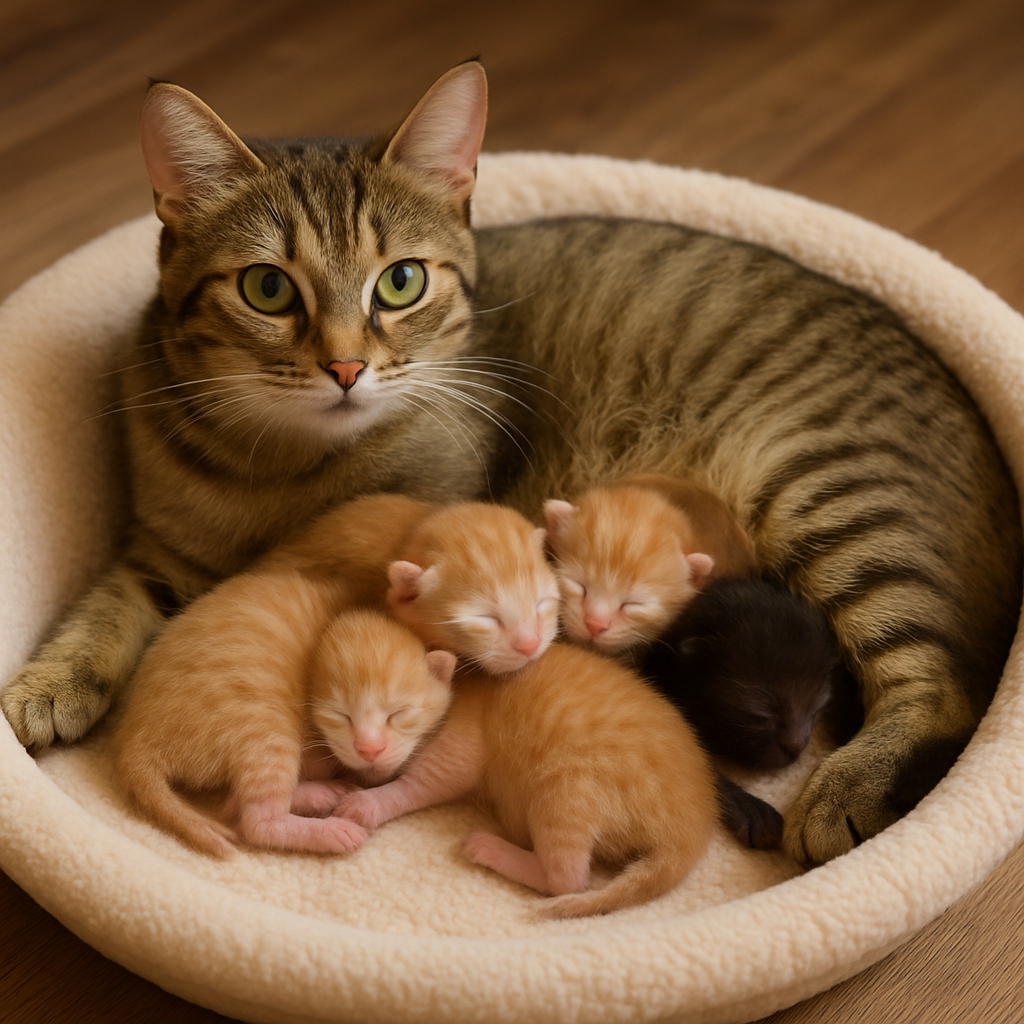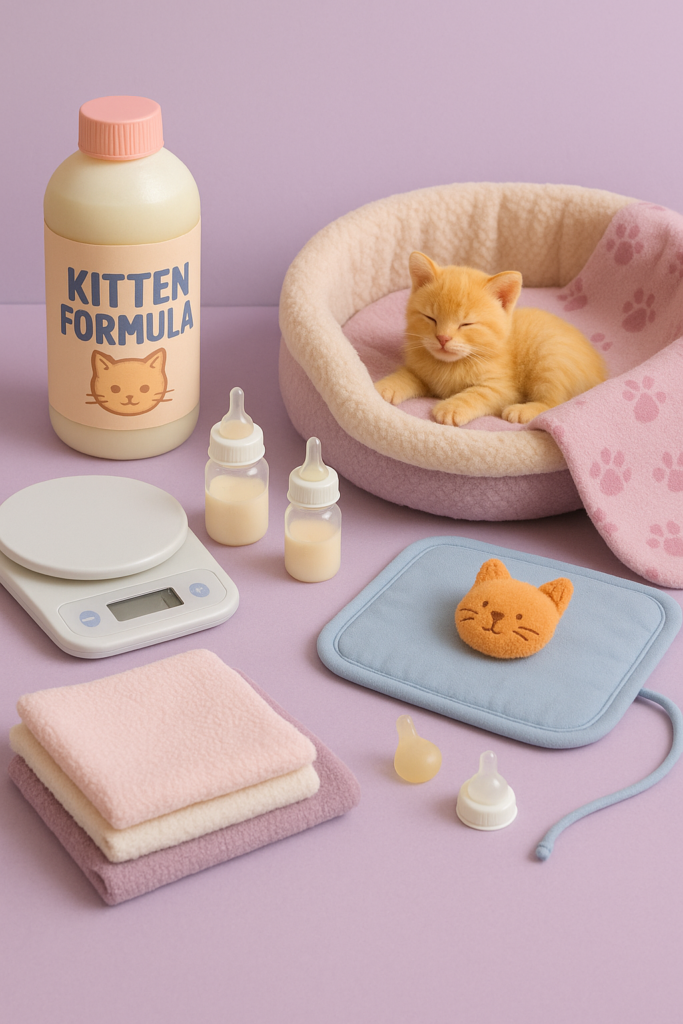Understanding a Kitten’s First Days of Life
The first days of a kitten’s life are crucial. Newborn kittens are completely dependent on their mother or human caretakers for survival. Their eyes and ears are closed, and they rely on their sense of smell and touch to navigate the world. Proper early kitten development ensures they grow into healthy adult cats.

Essential Supplies for Newborn Kitten Care
To effectively provide care, gather these essential supplies:
- Kitten Formula: Specially designed milk replacements
- Bottles and Nipples: Sized appropriately for newborns
- Heating Pad or DIY Incubator: Keeps kittens warm and comfortable
- Soft Bedding: Easily washable to maintain cleanliness
- Kitchen Scale: Essential for monitoring weight gain
Feeding Newborn Kittens: Schedule, Formula, and Techniques
Feeding + Warmth: Essentials for Newborn Kitten Survival
If you’re wondering about a proper feeding schedule for newborn kittens, here’s a guide:
- 0–2 weeks: Every 2 hours, including overnight
- 2–4 weeks: Every 3–4 hours
- 4–6 weeks: Gradually transition to every 4–6 hours
Feed kittens gently with specially formulated kitten milk replacement. Always feed kittens in a warm, quiet environment to prevent stress and encourage proper digestion.
Bottle Feeding Techniques
- Hold kittens belly-down, not on their backs.
- Allow kittens to suckle naturally; never squeeze the bottle.
- After feeding, gently stimulate their bellies to encourage burping.

Keeping Kittens Warm and Safe
Newborn kittens can’t regulate their body temperature, making keeping kittens warm vital for survival.
DIY Kitten Incubator
- Fill a sock with rice and warm it slightly in a microwave (always test the temperature first).
- Wrap it in a towel and place it near the kittens.
Ensure the nest area is clean, draft-free, and comfortably warm at about 85-90°F (29-32°C).
Monitoring Development Week by Week
Understanding newborn kitten care week by week helps track their health:
- Week 1: Kittens mainly sleep and nurse; monitor weight daily.
- Week 2: Eyes begin to open; start gentle handling.
- Week 3: Improved mobility; hearing develops.
- Week 4: Begin introducing wet food to prepare for weaning.
🔗 Related: How to Treat Your Kitten in the First Three Months
Signs of Healthy Growth vs. Warning Signs
Healthy kittens gain weight steadily, have firm bellies, and show increased mobility. Warning signs include lethargy, refusal to eat, weight loss, or persistent diarrhea.
When to Intervene and Call the Vet
Immediate veterinary attention is necessary if you notice:
- Persistent diarrhea or vomiting
- Difficulty breathing or consistent coughing
- Refusal to eat or significant weight loss
- Unusual lethargy or coldness to the touch
🔗 Related: Understanding Kittenhood: Development & Behavior
What to do if the Mother Cat Is Not Caring for Them
Sometimes, feline maternal care fails, and intervention becomes crucial:
- Immediately provide warmth and feed kittens with appropriate formula.
- Stimulate their urination and defecation after each feeding using a warm cloth.
If maternal neglect continues, seek veterinary advice immediately.
Hygiene and Litter Training Basics for Kittens
Begin hygiene training around 3-4 weeks of age:
- Introduce shallow litter boxes with non-clumping litter.
- Gently place kittens in the box after meals.
- Clean frequently to maintain hygiene.
🔗 Related: Litter Box Training
Transition to Solid Food (Weaning Period)
Start introducing solid food around week 4–5. Gradually mix formula with wet kitten food, slowly reducing the milk content until kittens eat solid food exclusively.
Quick Tips Box: Urgent Care Reminders
- Never bathe newborn kittens; it can cause hypothermia.
- Stimulate kittens’ urination after feeding with a warm cloth.
- Use a kitchen scale daily to monitor growth accurately.
FAQ: Common Questions About Newborn Kitten Care
Q: How often do I feed a newborn kitten?
A: Every 2–3 hours initially, including overnight.
Q: When can kittens go to the bathroom on their own?
A: Around 3–4 weeks old, but stimulation is necessary before then.
Q: Can kittens survive without their mother?
A: Yes, with proper care including feeding, warmth, and stimulation provided by humans.
Final Thoughts
Knowing how to take care of newborn kittens without a mother can be challenging, yet extremely rewarding. With appropriate feeding, warmth, hygiene, and attention to developmental milestones, you can give your kittens a strong, healthy start in life.
Explore More: Understanding Kittenhood: Development & Behavior | How to Treat Your Kitten in the First Three Months | Litter Box Training
